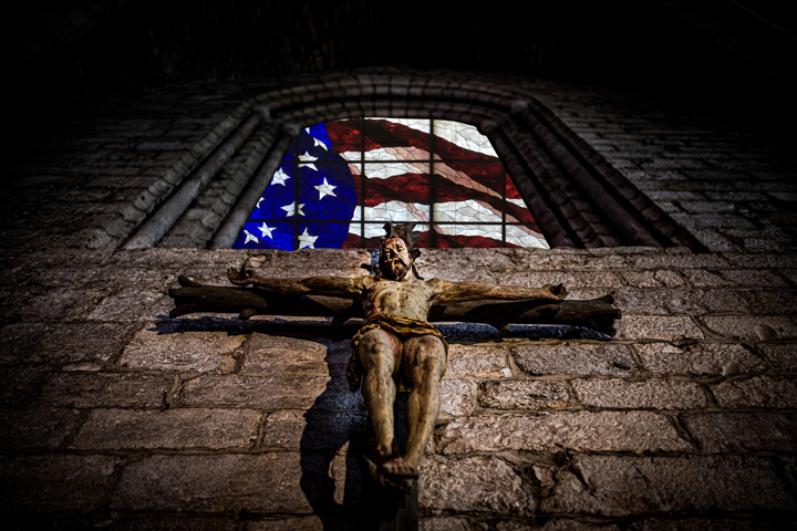The Catholic Church and freedom
''Commercial republics, marked by political and economic liberty, better than any other form of political economy, have lengthened the lifespan, lifted from poverty, and enlarged the range of human choice" -- or so the speaker claimed, at a lecture I attended last week, as he paraphrased with approval the thought of the Catholic philosopher, Michael Novak.
It was something Archbishop Fulton Sheen might have said without controversy 50 years ago. In many episodes of "Life is Worth Living," Sheen explains how the Catholic Church strongly supports both freedom and free enterprise.
And Sheen was not speaking for himself. There are dozens of references to freedom and liberty in the Catechism of the Catholic Church. Here's a choice passage: " . . . The common good presupposes respect for the person as such. In the name of the common good, public authorities are bound to respect the fundamental and inalienable rights of the human person. Society should permit each of its members to fulfill his vocation. In particular, the common good resides in the conditions for the exercise of the natural freedoms indispensable for the development of the human vocation, such as 'the right to act according to a sound norm of conscience and to safeguard . . . Privacy, and rightful freedom also in matters of religion,'"(n. 1907).
If one wants a more recent authority, St. Pope John Paul II was an admirer of Novak. He even incorporated strands of Novakian thought into his main encyclical on the economy, "Centesimus Annus." Of course, freedom is a constant theme in that great saint's magisterium.
The overlap between the Church's concern for freedom and the founding principles of the United States, "conceived in liberty," has stood Catholics well for generations. Even when the Supreme Court misguidedly endorsed abortion as a fundamental freedom, and effectively held that religious freedom could be guaranteed only by a "naked public square," Catholics had a strong position for pushing back -- witness the work of Father Richard John Neuhaus -- only because, in their Catholic belief, they could enthusiastically endorse genuine freedom as a great human good.
But some members of the audience at that lecture, aware that Catholic thought-leaders today, especially among self-styled "new conservatives," tend to depreciate freedom and favor instead the "common good," were intent on testing the speaker's convictions.
"This phrase, 'enlarge the range of human choice,' seems troubling," someone said. "Doesn't it exalt the mere having of options? Some people have argued that 'the market' tends to corrupt character, through catering to our craving for more and more options."
The speaker replied that enlarged choice was itself a good, just like a longer lifespan, but the one could be abused just like the other. Both require virtue. To give an example, he said that his father, the son of a poor immigrant, had no option to attend college and took the first job he could get, as a bank teller in his small town. In contrast, he attended college, had various offers in his life to work for global companies, if he liked, and could do good things like travel on pilgrimage to Rome. Certainly, the options we enjoy in good medical care, reading, and culture were good, he said.
I thought to myself: Perhaps people like the speaker's father were better off for being so humble in their options. And yet, it was undeniable that the range of options he described was, on its face, a good, and all of us lived as though we recognized it as a good.
The speaker added that a good upbringing and good family were almost indispensable for making good use of those choices -- he himself was an example -- that, if the family was breaking down, we shouldn't be surprised if people made bad use of choices. I thought to myself, I cannot gainsay any of this.
The Founders were clear that the freedoms enjoyed by Americans had to be underwritten by virtue, the speaker explained. Novak, too, was clear that although a "commercial republic" was good at fostering some virtues, like industry and optimism, it needed the full backdrop of a "culture of self-restraint." But such a culture had to come from institutions outside the marketplace, especially churches. I thought: As a matter of historical fact, Christianity has sustained the vision of freedom in our country.
Another audience member spoke up: "But don't the public schools make it difficult for families and churches to do that job?"
"Yes, they do," the speaker said, "but a concern for freedom would argue in favor of school vouchers, wouldn't it?" -- And I thought to myself that, it's true, the Declaration on Religious Liberty of Vatican II plainly teaches that it is a gross injustice to make parents who want a religious education for their children pay twice for it. That's an argument from a proper concept of freedom.
Then someone asked, "But do we as a people care any longer about freedom? Consider the vaccine mandates for example, which offend against consciences. And the way in which we've accepted that businesses can be forced into bankruptcy, or landlords forced to absorb costs of the lockdowns. Don't we prefer a marginal increase in 'safety' over freedom?"
I then thought: Freedom of worship, freedom to associate, freedom to work, freedom to educate, freedom of conscience -- these certainly look like genuine, not spurious freedoms.
And the speaker had no answer to this question, and neither do I.
- Michael Pakaluk, an Aristotle scholar and Ordinarius of the Pontifical Academy of St. Thomas Aquinas, is a professor in the Busch School of Business at the Catholic University of America. He lives in Hyattsville, MD, with his wife Catherine, also a professor at the Busch School, and their eight children. His latest book, on the Gospel of Mark, is "The Memoirs of St Peter." His next book,"Mary's Voice in the Gospel of John," is forthcoming from Regnery Gateway.



















